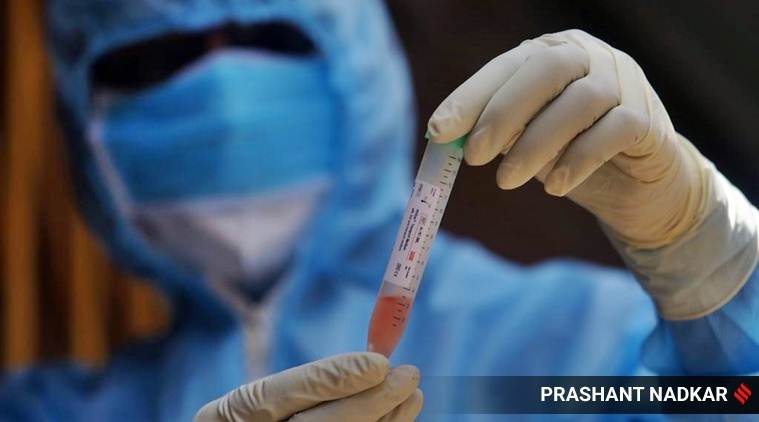 The nanomedicine is made by combining the nanoparticles extracted from manganese salt with citrus extract, like from lemon. (Representational)
The nanomedicine is made by combining the nanoparticles extracted from manganese salt with citrus extract, like from lemon. (Representational)
Scientists at the S.N.Bose National Centre for Basic Sciences (SNBNCBS) in Kolkata have now developed a nanomedicine to counter a number of diseases, and say that the medicine can also be an effective cure for the Covid-19 virus. The medicine, which is developed using nanotechnology, and also involves the use of nanoparticles as it’s component, has already been tested successfully on animals and now awaits human trials. But for it to be used against the Covid-19 virus, the institute will have to acquire a strain of the virus and then begin testing on animals afresh – a process that is likely to take anywhere between one and a half to two years.
Dr.Samir Pal, a professor at the institute’s Department of Chemical, Biological and Macromolecular Sciences, and a former professor at the California Institute of Technology, who has spearheaded the development of the nanomedicine says that disease is here to stay.
“It is important that the nanomedicine be tested to see its efficacy with regards to the Covid-19 virus even if it does take two years to reach the market. Even if the pandemic does get over soon, the disease is here to stay and we will need a cure. And a pandemic may resurface in the near future as well,’’ he said.
The nanomedicine is made by combining the nanoparticles extracted from manganese salt with citrus extract, like from lemon. The nanomedicine is far more effective than normal drugs, says Dr.Pal, because it has the ability to go past RNA/DNA and other barriers due to the nature of it’s size.
“The medicine releases Reactive Oxygen Species into cells, which act like an alarm system, prompting cells to become aware of danger that a particular virus or bacteria or antigen poses to the cell and the human body. The cell will start attacking the virus. If the nanomedicine is introduced in slightly higher quantity, then instead of just prompting the call to fight the disease, the ROS can directly kill the disease. The medicine has a high immune-modulatory effect,’’ adds Dr.Pal.
The research, that the Institute has undertaken for the past three years, has completed it’s animal trials and proved it’s efficacy against a number of diseases including jaundice, neonatal jaundice, chronic kidney diseases and a number of neural problems. The institute has applied to the DCGI for permission to begin human trials for the nanomedicine. So far, the nanomedicine has been developed as an injection, but Dr.Pal suggests that the medicine be adjusted to be used with a nebulizer in the context of the Coronavirus.
The artificially made nanomedicine was found to be important to maintain a balance of reduction and oxidation processes (Redox) in our body’s tissues. Redox reactions in cells add or remove oxygen, and are essential for many processes such as generating energy in cells. The redox reactions can also create the Reactive Oxygen Species (ROS), which can instantly oxidize lipids (fat), proteins, and nucleic acids, accelerating the ageing process. Our immune cells naturally produce ROS or generate oxidative stress to kill viruses or bacteria and infected cells in our body. The nanomedicine simply aims at a controlled-increase of ROS or oxidative stress aids our immune cells to perform their natural functions more efficiently.
The animals trials, say Dr.Pal, have shown that the nanomedicine can bring down bilirubin levels in mice within two and a half hours.